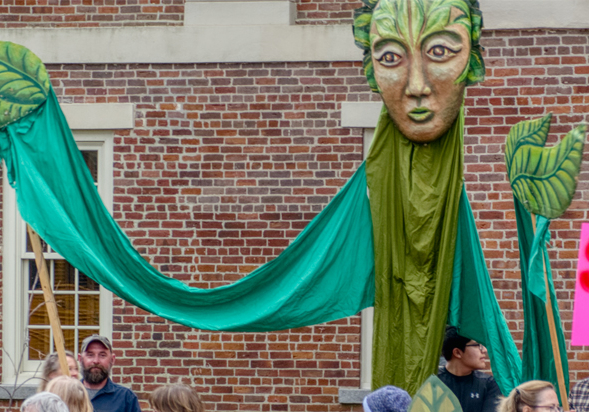Why It Matters
The Triangle’s population grew 130% over the last decade and the conversion of natural and agricultural land to developed land grew a staggering 650%. It is estimated that the Triangle’s population could grow an additional 106% by 2040, placing significant pressure on remaining natural resources that benefit our community health.

Land conservation reduces the effects of climate change. Conservation helps to absorb greenhouse gases and prevents significant greenhouse gas emissions that would result from development — including deforestation, construction and the additional driving required by poorly planned growth. In addition, research shows that children, older adults, and low-income populations are most vulnerable to climate-related effects. Conservation programs targeted at these specific populations are vital to a thriving population.
New 2020 Land Transaction Grantee Partners Announced!
We are excited to announce our 2020 grantee partners through our land conservation transaction program, bringing the total of conserved land the Foundation has helped conserve to 267 acres since 2015. The two most recent projects collectively received funding to support vital conservation in the region. Read more about it here.
View a list of Environmental Conservation nonprofit partners since 2013.
Current Partners
- Alliance for Climate Education
- Center for Environmental Farming Systems (Food Youth Initiative)
- El Futuro, Inc.
- Ellerbe Creek Watershed Association
- Extra Terrestrial Projects
- Haw River Assembly
- Integrative Strategies Form*
- Inter-Faith Food Shuttle
- Museum of Life and Science
- Partners for Environmental Justice
- Piedmont Conservation Council (Awareness)
- SEEDS
- Toxic Free NC
- Trees Durham
- Triangle Land Conservancy
- YMCA of the Triangle Area
* Permanent funding from designated fund at TCF
Featured Story: Banding Together for the Trees

“I believe that you just cannot do work on environmental issues at the local level without the community [being] involved,” says Elaine Chiosso, Executive Director of the Haw River Assembly (HRA). Her organization has spent six years advocating for better environmental protections to be required in Chatham Park, a 7000+ acre planned development community that will be partially situated along the Haw River in Chatham County.
Our Impact: Blueprint Analysis

Our Land Transaction grant program helps nonprofits to conserve natural and agricultural land in the region. This Blueprint Analysis done by NC State's "Conservation Blueprint" reflects the land which has been conserved in the Triangle. Through this analysis, we can see the impact of these conservation projects and the improvement it has made to our environment.
